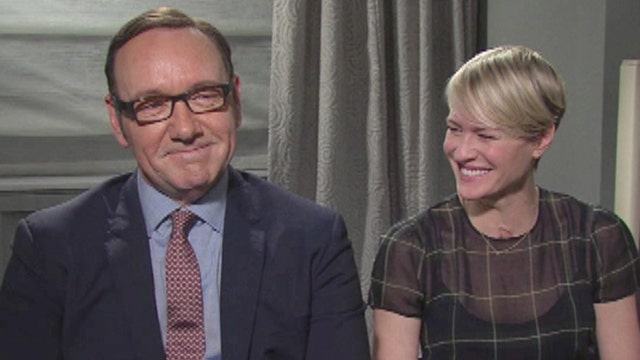LOS ANGELES – By charging subscribers just eight or nine bucks a month, the digital streaming service Netflix is able to produce scores of series and movies starring the biggest names in Hollywood, including Brad Pitt, Kevin Spacey, Paul Rudd, and Sissy Spacek.
So how do they do it without going broke?
Netflix closed out the 2015 first quarter with 62.3 million members, adding 4.9 million new users in the first three months of the year. The company says they expect to add 600,000 subscribers in the second quarter of 2015. Multiply 63 million subscribers times $8/month, and that’s $504 million a month Netflix has to play with.
And unlike driving to the movies and buying a ticket, or even sitting down in your living room to argue with your family over which to watch, all these subscribers have to do is power up their computer or smart phone and watch whatever they want.
And that’s changing everything.
“What’s happening in the movie industry is that Netflix is stepping up and financing movies that are otherwise difficult to distribute,” Variety’s senior editor Ramin Setoodeh told FOX411. “They are putting out movies the big studios may not be making, and you saw that with the Brad Pitt movie—'War Machine.' [Pitt’s team] were trying to get other studios to buy it and then they went to Netflix and Netflix invested heavily in it and made it possible for them to make it.”
Netflix paid Pitt’s people a reported $30 million for the satirical war film, its biggest outlay for a feature to date.
And the actors who star on the Netflix series do just fine too, thank you.
“Every indication is that Netflix pays very well, perhaps similar to a premium cable channel,” said Ronn Torossian, CEO of 5WPR. “With 60 million global subscribers and a projected $6 billion dollars in revenue, stars are treated very well by Netflix.”
In 2014, TV Guide reported that Kevin Spacey made $500,000 per episode for the Emmy winning Netflix show “House of Cards.” With that salary, Spacey is on par with other network stars, like Mark Harmon on “NCIS” at $525,000, and some of “The Big Bang Theory” stars who bring in $1 million per episode.
Setoodeh says there’s another important reason for the movement of talent toward Netflix – freedom – “because Netflix will afford them more creativity as artists. They will be able to make these movies for Netflix and probably do stories that are more challenging that the studios may not be financing.”
Entertainment entrepreneur Jonah Engler, expects the A-list celebrity trend to continue on Netflix.
“From Angelina Jolie to Paul Rudd, A-list stars are appearing on Netflix – and there’s no doubt it’s been good for them,” he said. “Expect that to continue.”
Torossian says the relationship is a win-win for the stars and the service.
“Brand exposure on Netflix is great for stars as they have done very well with original programming,” he continued. “Netflix has very loyal consumers – and that bodes well for A-List stars.”















































